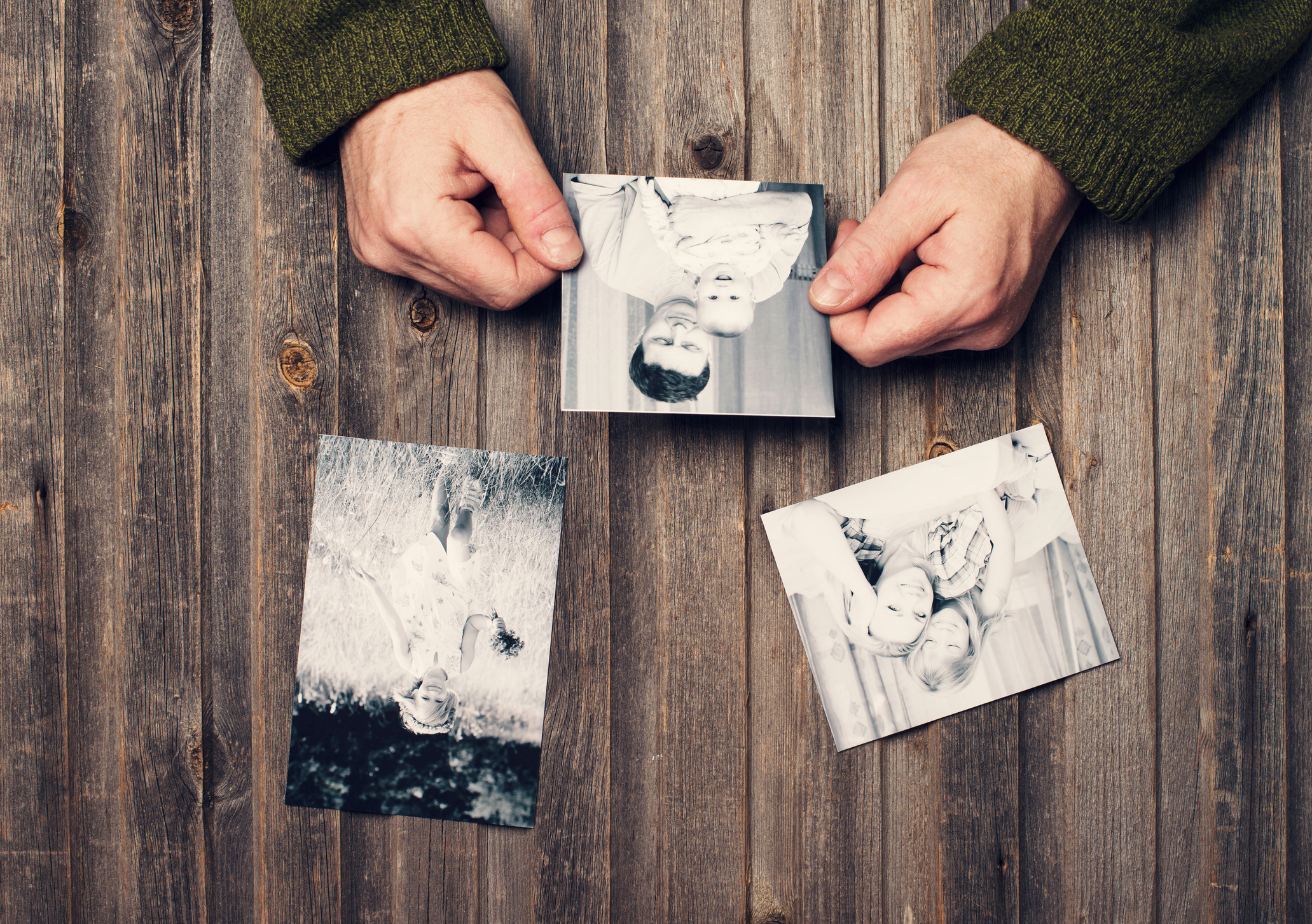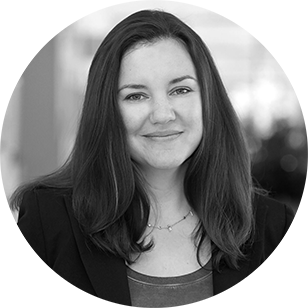How a DNA kit shed light on my family's dark secrets
One woman's search for her long-lost father


A free daily email with the biggest news stories of the day – and the best features from TheWeek.com
You are now subscribed
Your newsletter sign-up was successful
My stomach turned circles. My fingers hovered over the phone as I contemplated dialing the number to a man I'd never met.
This was more than just a phone call. I was about to speak to my father for the first time.
My father had always been a giant question mark in my life. I knew nothing about him — not his name nor what he looked like — until I took an AncestryDNA test. I filled the plastic vial with saliva, put it in the mail, and two years later, I got a match: my first cousin, my father's niece.
The Week
Escape your echo chamber. Get the facts behind the news, plus analysis from multiple perspectives.

Sign up for The Week's Free Newsletters
From our morning news briefing to a weekly Good News Newsletter, get the best of The Week delivered directly to your inbox.
From our morning news briefing to a weekly Good News Newsletter, get the best of The Week delivered directly to your inbox.
Science has given us previously unthinkable access to information about ourselves. Millions of people take these consumer DNA tests every year. Some people find surprises about their ethnic origins. Others gain insight into their medical histories. And sometimes, like in my case, these tests shed light on family secrets once shrouded in darkness.
"I don't know why anyone wants to take these tests," a friend said to me. "Let bygones be bygones." For me, the answer was simple: I wanted to find my dad. As an infant, my mother left me with her parents, so she could chase a career as a foreign correspondent for The Associated Press. She died 25 years ago, when I was 13, and took his identity to the grave.
That secret ate away at my childhood, corroding my psyche, like rust on a car. I spent 38 years convinced that I'd never know what and who made up my other half. Every time I saw a doctor, I'd ask about the health implications. Should I be worried about not knowing the diseases or fragilities of my father's genetic material? Should I seek genetic testing? Of course, a human being is more than cells in a petri dish, but this didn't assuage the bone-deep desire to know my provenance.
Then, one Saturday morning as I was preparing to leave with my family for a weekend in Vermont, a woman messaged me through the Ancestry platform. She was my first cousin, my father's niece.
A free daily email with the biggest news stories of the day – and the best features from TheWeek.com
"Apparently we are cousins," she wrote. "I hope we can connect."
We exchanged a flurry of text messages and emails. I ended up speaking with her, plus her mother and her brother. I recounted my story to them — the where and when of my birth — and we attempted to piece together the how and why. Did they know my father?
Indeed, they did. To them, his identity was obvious. I found pictures of this man and, for the first time, I saw his chocolate hair and high cheekbones. Our resemblance was undeniable. Suddenly, my father had a name. He had a face. He even had a political affiliation.
Now that I knew my father's identity, my search for answers settled on a new question: Did he know mine?
I had drawn a picture of my father in my mind. I imagined him to be smart, successful, and sophisticated. Perhaps I was lucky enough to be a love child, like Liv Tyler, the daughter of Aerosmith frontman Steven Tyler. He was somebody.
But my dreams were far from reality.
Here's what I learned about the real man who is my father: He is left-handed, like my mother (I am right dominant). He lived in Colorado at the same time I lived there with my grandparents; he was only a three-hour drive from their tiny rural outpost. He has three grown children, myself not included. He is alive, an octogenarian.
Most importantly, however, I learned both he and his wife knew about me all along. They desperately wanted to keep their relationship to me a secret. They still do.
When my father met my mother in the late 1970s, they were both reporters at the same Associated Press bureau. He was more than 20 years her senior. To be sure, the cultural context was vastly different then, and especially since the #MeToo movement. It was still a time when women took the backseat to men in the working world. A 45-year-old married man with a family should know better than to sexually engage with a woman who is fresh out of college and working her first "real" job.
So, was this a dalliance? Maybe. A one-night stand? Possibly. Sexual assault? I wouldn't rule it out. The only person who might tell the truth, my mother, is dead. When she died in a helicopter accident in Afghanistan in 1993, it was covered in the world press. My father and his wife surely watched as her death was reported. But they were scared of the shame this secret might bring them. My heart raced thinking about the decades of duplicity.
Before dialing the number, my husband talked me down from a fit of rage.
"Let him say exactly what he wants to say, even if you feel like you can't listen to it," he said.
I dialed. The phone rang. An elderly man with a weak and rattling voice answered.
In a calm tone, I said I knew I was his daughter.
He sat quiet.
"You have two little grandchildren," I said. "I can see from your photos that we resemble you."
I offered to send him some pictures, to which he started to fluster; he didn't "need any of that."
I told him I also planned to contact his other children with this information. "You don't get to make this decision anymore," I said.
He called me presumptuous.
Our call lasted eight minutes.
I gave him a chance, but he was a closed book the whole time.
This man I spoke to on the phone, my father, has provided a shining example of who I do not want to become. He renewed my devotion to teaching my children to be open and honest, even when things are not pretty or neatly contained. There's never an excuse to make emotionally and morally bankrupt decisions.
As a parent myself, I have realized that DNA does not make someone a mom or a dad. Those titles are reserved for people who devote their time and love and energy to teaching, coddling, and nurturing a child.
His secret burdened me for a very long time. But the great thing about maturity is that my identity and self-worth are no longer defined by my parents. I still loathe my origin, but it made me who I am today. And for that, I am grateful.
Tracee Herbaugh is a writer and journalist living in the Boston area with her family. Her work has appeared at The Washington Post, Salon, and other publications. She is a frequent contributor for the Associated Press.
-
 Political cartoons for February 16
Political cartoons for February 16Cartoons Monday’s political cartoons include President's Day, a valentine from the Epstein files, and more
-
 Regent Hong Kong: a tranquil haven with a prime waterfront spot
Regent Hong Kong: a tranquil haven with a prime waterfront spotThe Week Recommends The trendy hotel recently underwent an extensive two-year revamp
-
 The problem with diagnosing profound autism
The problem with diagnosing profound autismThe Explainer Experts are reconsidering the idea of autism as a spectrum, which could impact diagnoses and policy making for the condition
